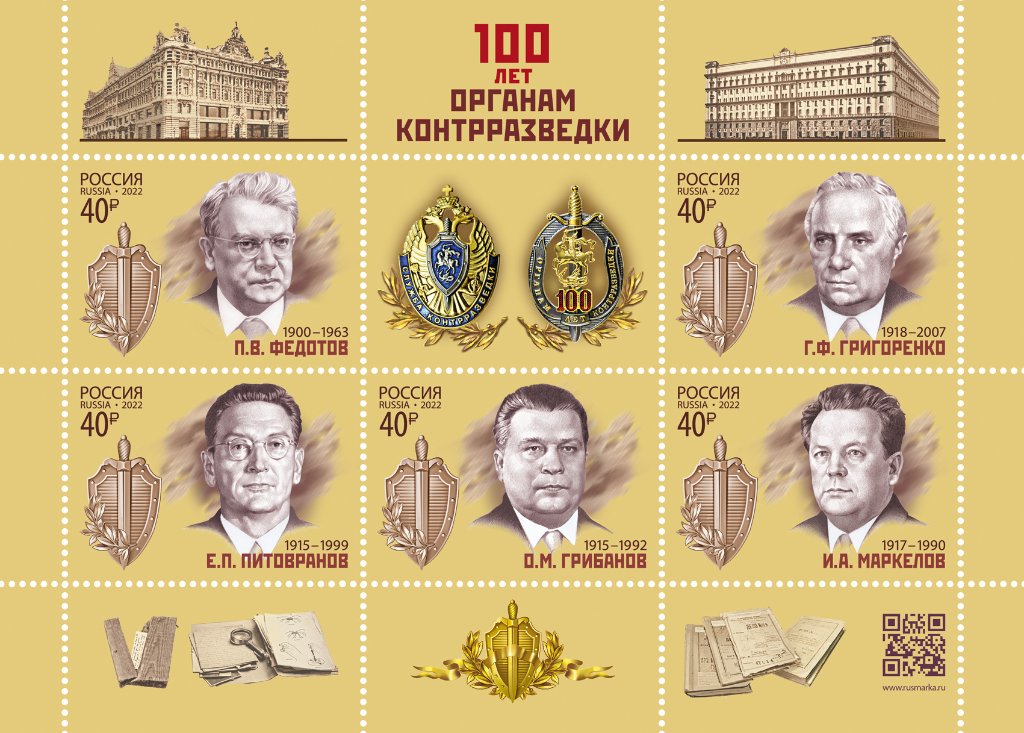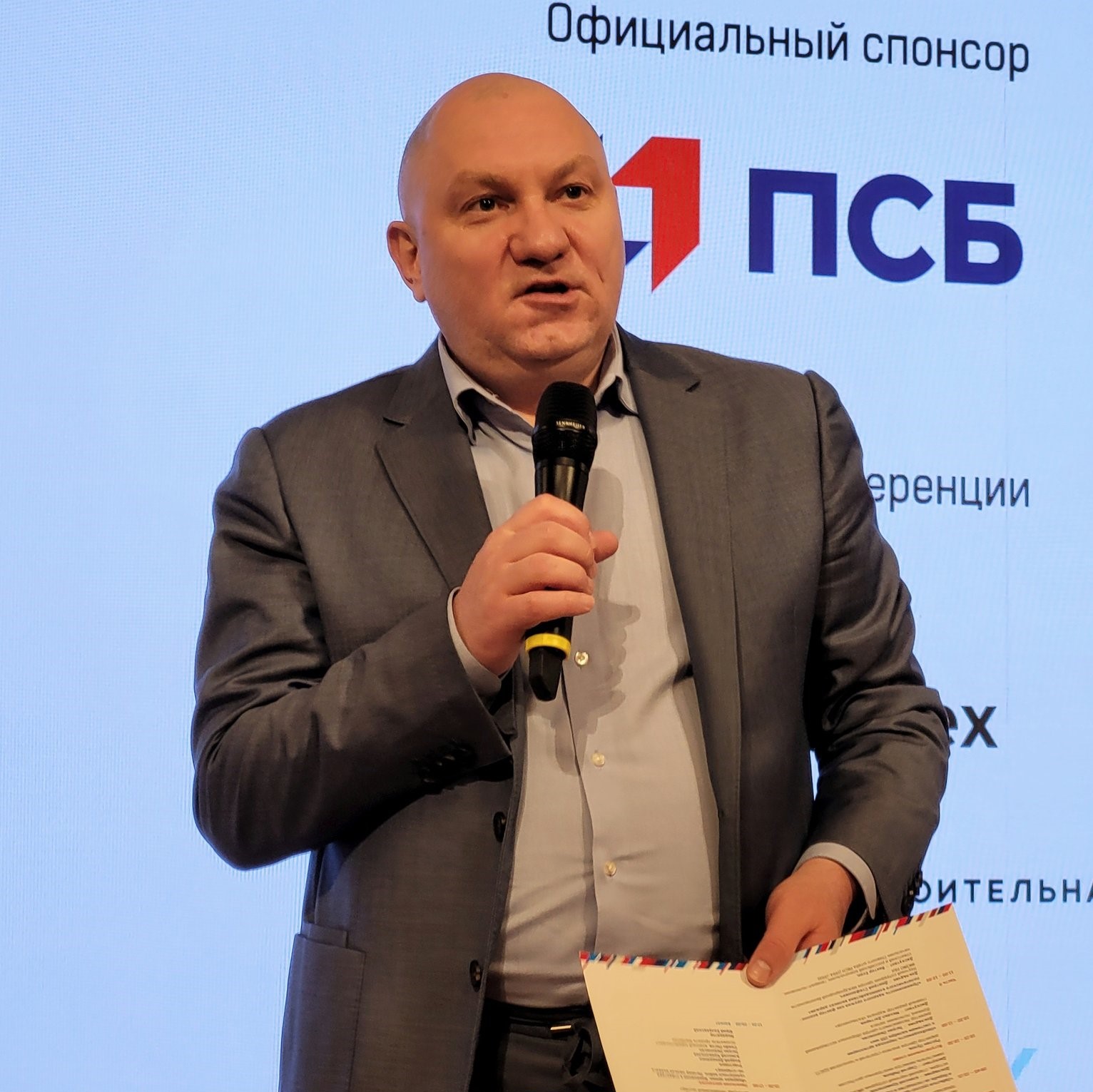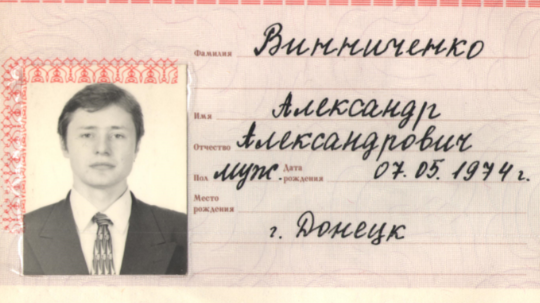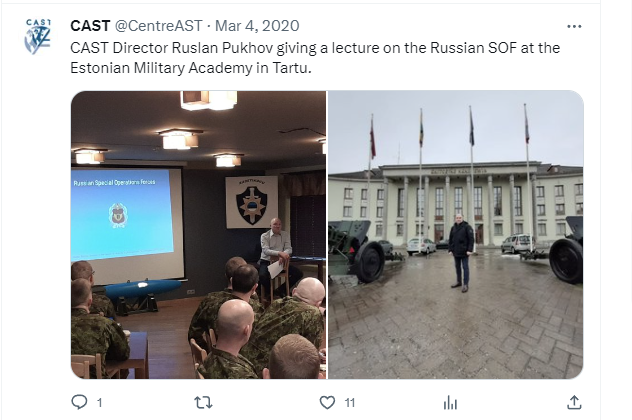5.1
FSB counterintelligence and collaboration with Russian research institutions
In addition to monitoring and harassing the employees of Western embassies in Russia, the FSB also attempts to recruit Russian academics and think tank experts who interact with foreign embassies.
Foreign embassies in Russia and research institutions in the West that engage with the Russian expert community must be aware that information about their interactions with Russian citizens is likely to reach the FSB.
FSB DEPARTMENT FOR COUNTERINTELLIGENCE OPERATIONS
In our 2017 annual report, we described the harassment of Western diplomats in Russia: covert and overt surveillance, provocations, public harassment with media involvement, and break-ins into residences. These activities are orchestrated by the Federal Security Service of the Russian Federation (FSB) through its Department for Counterintelligence Operations (DKRO). The DKRO is divided into subunits based on geographical regions; the subunits are responsible for counterintelligence against the embassies of specific major countries, such as the United States, or groups of countries, in Moscow. Like other FSB structural units, the DKRO uses a cover designation, “Military Unit No 97740”, where appropriate, including in public correspondence, posing as a Russian Armed Forces unit subordinate to the Ministry of Defence.
In 2022, Russia celebrated the 100th anniversary of its counterintelligence establishment. Russian counterintelligence traces its origins to May 1922, when the State Political Directorate of the People’s Commissariat for Internal Affairs of the Soviet Union (NKVD GPU) made the decision to create a central counterintelligence unit – the Counterintelligence Department – within the Soviet security apparatus. Over the years, the Soviet Union and its successor, Russia, have repeatedly reorganised the counterintelligence apparatus, changing its name and altering its chain of command. Counterintelligence remains an area of pride for Russia, even though many leaders of Soviet security agencies were unjustly convicted in the 1930s and later for alleged collaboration with foreign security services (these convictions were orchestrated by colleagues, many of whom were subsequently punished for similar fabricated crimes). Counterintelligence, involving the fight against foreign spies and subversion undermining the existing political order, has remained the most important field of work for Soviet and Russian security agencies throughout the decades.

Hunters of foreign spies are highly regarded in Russia. The national postal operator released a series of stamps on 6 May 2022 to commemorate the 100th anniversary of counterintelligence apparatus.
Source: www.pochta.ru
The primary mission of FSB counterintelligence units is to counteract the activities of foreign intelligence services in Russia. The DKRO is responsible for monitoring the activities of foreign embassies located in Moscow. Similar units in Russian regions, under the umbrella of FSB regional directorates (UFSBs), are responsible for overseeing the activities of foreign consulates in specific areas such as oblasts, krais and other “subjects” of the Russian Federation. Counterintelligence tracks and harasses all diplomats from countries considered hostile, regardless of whether they are believed to be employees of foreign intelligence services or not. It also targets Russian citizens employed in foreign diplomatic missions and attempts to recruit them as clandestine collaborators for DKRO and UFSB counterintelligence units. In addition to the employees of foreign diplomatic missions, the DKRO also monitors other foreign citizens in Russia suspected of espionage or other activities detrimental to Russian interests, as well as Russians suspected of working for foreign intelligence services or serving foreign interests.
The FSB actively recruits experts who visit foreign embassies.
The DKRO and its counterparts in Russian regions are interested in everything that happens within foreign embassies and consulates on Russian territory, not only the activities of suspected foreign spies.
Russian citizens employed in foreign embassies, whom the DKRO seeks to recruit for intelligence gathering, mostly occupy lower-ranking positions, lack access to important documents and are excluded from discussions related to foreign policy decisions regarding Russia. Therefore, the DKRO also attempts to enlist Russian citizens invited to foreign embassies as visitors. This group includes academics and analysts from Russian universities, institutes and think tanks engaged by embassies as experts on Russian affairs. Western institutions and foreign nationals who interact with Russian academics and think tank experts holding more moderate or “acceptable” views by Western standards should still be aware that their interactions are highly likely to be reported to FSB counterintelligence.
RUSSIAN MILITARY EXPERT RUSLAN PUKHOV
The “protagonist” of this analysis is Ruslan Pukhov. Pukhov was born on 16 April 1973. He graduated from the Moscow State Institute of International Relations (MGIMO) and is well-known both in Russia and abroad as an expert on Russia’s armed forces and military industry. Since 1997, Pukhov has been heading the Centre for Analysis of Strategies and Technologies (CAST), an organisation he founded himself. He has extensive connections within Russia’s political leadership. Pukhov is a member of the Public Council under the Russian Ministry of Defence and an expert council operating within the government. He writes articles on military topics and gives interviews to prominent Russian and Western media outlets. Some of these outlets have continued to publish his viewpoints even after the outbreak of a full-scale war in Ukraine in February 2022.
Pukhov has been awarded a Russian Ministry of Defence medal on at least two occasions. He received one in February 2020 for his participation in military operations in Syria and another in October 2021 for his contributions to strengthening Russia’s national defence. Exactly a year later, on 19 October 2022, Pukhov “inadvertently” revealed on a Russian television channel that the Russian Armed Forces were using Iranian drones during the invasion of Ukraine, a fact previously denied by the Russian leadership. As far as we know, no repercussions ensued, and Pukhov’s position as a military expert in Russia remained unaffected. In September 2022, CAST, Pukhov’s think tank, announced in Russian media that it would offer one million roubles as a reward to any Russian military personnel or government employee who could obtain, in more or less working condition, a THeMIS UGV, an unmanned ground vehicle built by the Estonian defence contractor Milrem Robotics, and deliver it to the Russian Ministry of Defence. A number of these vehicles had previously been delivered to Ukraine for testing.

Ruslan Pukhov
Source: CAST X account
FSB DKRO OFFICER ALEXANDER VINNICHENKO
Another “protagonist” in our analysis is the FSB DKRO counterintelligence officer Alexander Vinnichenko. Vinnichenko was born on 7 May 1974 in Donetsk, Ukraine. Ukrainian ties among Russian security officers are not unusual, as many other FSB intelligence and counterintelligence officers, including some unit commanders, have Ukrainian roots or backgrounds.

A copy of Vinnichenko’s passport.
Alexander Vinnichenko’s wife, Olga, has also been associated with the FSB. She worked at the FSB Academy in the 1990s. Since the 2000s, Olga Vinnichenko has been involved in migration-related matters within the Russian Ministry of Internal Affairs, holding positions allowing her to collect information about foreign citizens arriving in Russia. According to our information, several FSB officers whose wives or other close relatives have access to information about foreigners present on Russian territory have used this opportunity to gather information about potential recruitment targets unofficially.
PUKHOV’S COLLABORATION WITH VINNICHENKO
Ruslan Pukhov has been interacting with employees of Western embassies in Moscow since the 1990s and has an impressive circle of contacts among Western diplomats and military experts. Pukhov’s collaboration with Vinnichenko dates back to at least 2010s. However, due to his interactions with Western diplomats, he has likely been of interest to the FSB since the beginning of his career. As an FSB agent, Pukhov regularly informs his handler, Vinnichenko, about his contacts with Western diplomats, events he is invited to and other individuals, including Russian citizens, who are also invited to these events. He requests separate information from organisers about these Russian attendees. As an informant for the FSB DKRO, Pukhov presents himself as a highly security-conscious individual when interacting with Western diplomats. He often suggests security measures to ensure the safety of Russian guests invited to events organised by foreign embassies to prevent them from being scrutinised by Russian security agencies. For example, he recommends against holding events at embassies. At the same time, Pukhov shares information about these events and their attendees with Vinnichenko. While the recommendation to avoid embassy events may seem reasonable to organisers, given that foreign diplomatic missions in Russia are known to be closely monitored by the FSB, holding events in public venues makes it easier for the FSB to record discussions surreptitiously. They often employ this practice and may publicise the recordings if necessary.
Pukhov has reportedly provided Vinnichenko with information about events at embassies in Russia representing Estonia, Japan, Norway, Sweden, Romania and the United States, among others. However, this list is not exhaustive, and many more countries are likely involved.
Ruslan Pukhov has shared information about his contacts with individuals from numerous Western countries with Vinnichenko.
Pukhov also regularly informs Vinnichenko about various events held at prestigious foreign universities and think tanks, where he is invited to speak, including in the US, the UK, Turkey, Pakistan and the United Arab Emirates. Among other things, Pukhov requests information from the organisers about Russian citizens who have also been invited to these events.
Pukhov and Vinnichenko regularly meet in person. When planning his participation in events held abroad or those organised by foreign diplomats residing in Russia, Pukhov coordinates with Vinnichenko, who is primarily interested in his agent’s meetings with foreign individuals. Meetings involving Russians are of less interest to Pukhov’s FSB handler. This further illustrates Vinnichenko and the DKRO’s focus on foreign nationals.

Pukhov speaking to Estonian Military Academy cadets in 2020.
Source: CAST X account
PUKHOV IS NOT A UNIQUE CASE
Ruslan Pukhov is not the only “informal” informant who provides information to the FSB about his contacts with Western diplomats or other foreign nationals, visits by foreign delegations and his own foreign trips, and then submits reports on meetings, primarily about the views expressed by foreigners. According to our information, many such individuals exist in Russian universities, research institutions and think tanks. Furthermore, many Russian institutions officially submit regular reports to the FSB about their upcoming contacts with foreigners, both on Russian and foreign territories, specifying the date of the meeting, the agenda and the names of the foreign participants. The situation in Russia remains largely unchanged from the Soviet era when the KGB followed a similar practice of monitoring interactions with foreigners and overseas travels. Individuals who interact with Russian academics and think tank experts with moderate or “acceptable” views by Western standards should be aware that their interactions are highly likely to be reported to FSB counterintelligence.
The Estonian Foreign Intelligence Service will continue to expose the activities of Russian intelligence services.
In our forthcoming annual reports, we will persist in exposing the activities of Russian intelligence and security services, along with individuals collaborating with them. For those who prefer not to find their names and images alongside those of FSB or other Russian intelligence officers in our publications, potentially affecting their associations with the West, we extend an invitation to get in touch. We are confident that mutually advantageous arrangements can be negotiated!